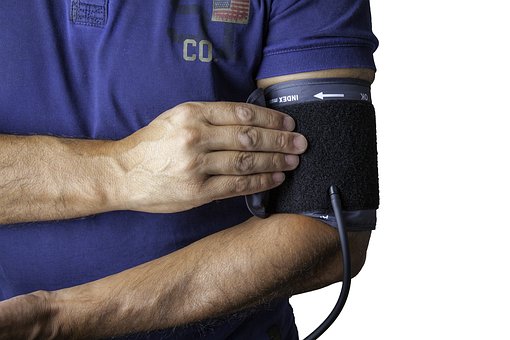Blood pressure is decided both by the measure of blood, your heart siphons, and the measure of protection from the bloodstream in your corridors. As the more blood your heart siphons, and the smaller your supply routes, the higher your blood pressure. Blood pressure can unobtrusively harm your body for quite a long time before side effects create. Left uncontrolled, you may end up with incapacity, low quality of life, or even a deadly heart assault.
Effects Of High Blood Pressure On The Heart
Your heart pumps blood to your whole body. Uncontrolled blood pressure can harm your heart in various ways, for example,
Coronary artery infection – Coronary artery malady affects the conduits that supply blood to your heart muscle. Veins limited by coronary artery sickness don’t enable blood to stream through your supply routes. At the point when blood can’t stream to your heart, you can encounter chest torment, a heart assault, or unpredictable heart rhythms (arrhythmias).
Heart failure – Over time, the strain on your heart brought about by blood pressure can cause your heart muscle too weak and work less effectively. In the end, your overpowered heart just starts to wear out and fizzle.
Effects Of High Blood Pressure On The Brain
Much the same as your heart, your brain relies upon a feeding blood supply to work appropriately and endure. High blood pressure can cause some issues, including:
Transient ischemic assault (TIA) – Sometimes called a mini-stroke, a transient ischemic assault is a short, brief interruption of blood supply to your brain. It’s frequently brought about by atherosclerosis or blood coagulation — the two of which can emerge from blood pressure. A transient ischemic assault is frequently a notice that you’re in danger of a stroke.
Stroke – A stroke happens when some portion of your cerebrum is denied of oxygen and supplements, causing synapses to bite the dust. Uncontrolled Blood Pressure can prompt stroke by harming and debilitating your brain’s veins, making them tight. Blood pressure can likewise cause blood clusters to frame in the conduits prompting your brain to block bloodstream. This possibly leads to a stroke.
Dementia – Dementia is a brain illness that brings about issues with considering, talking, thinking, memory, vision, and development. There are various reasons for dementia. Vascular dementia can occur about because of narrowing and blockage of the courses that supply blood to the brain. It can likewise result from strokes brought about by the interference of bloodstream to the cerebrum. In either case, blood pressure might be the offender.
Effects Of High Blood Pressure On The Kidneys
Your kidneys channel abundant liquid and waste from your blood — a procedure that relies upon solid veins. Blood pressure can harm both the veins and your kidneys. This can make issues like:
Kidney failure – High pulse is a standout amongst the most widely recognized reasons for Causes Of Kidney Failure. That is on the grounds that it can harm both the veins leading to your kidneys and the small veins (glomeruli) inside the kidneys. Harm to either of these makes your kidneys to hinder channeling of blood. Accordingly, hazardous dimensions of liquid and waste can aggregate. You may, at last, require dialysis or kidney transplantation.
Kidney supply route aneurysm – An aneurysm is a lump in the mass of a vein. When it happens in a course leading to a kidney, it’s known as a kidney (renal) supply route aneurysm. After some time, blood pressure in a debilitated course can make an area extend and structure a lump called the aneurysm. Aneurysms can crack and cause perilous interior dying.
Effects Of High Blood Pressure On The Body
Everything Health says blood pressure can likewise influence different regions of the body, prompting such issues as:
Bone loss – High blood pressure can expand the measure of calcium that is in your urine. That exorbitant disposal of calcium may prompt loss of bone thickness (osteoporosis), which thusly can prompt broken bones. The hazard is particularly expanded in aged ladies.
Trouble resting – Obstructive sleep apnea is a condition where your throat muscles loosen up, making you wheeze uproariously. It’s currently believed that blood pressure itself may help trigger Sleep Apnea.
Blood pressure is generally an endless condition that bit by bit causes harm throughout the years. It is a fact that once in a while, the blood pressure rises so rapidly and seriously that it turns into a restorative crisis requiring quick treatment, frequently with hospitalization.


















